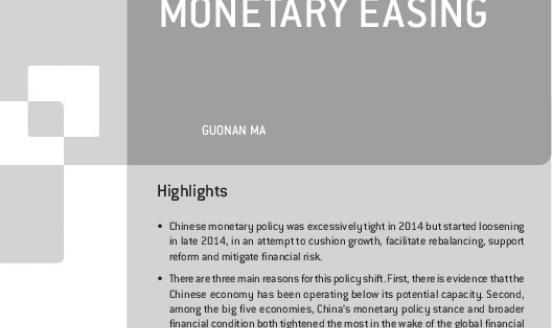
Guonan Ma
Dr Guonan Ma was a visiting research fellow at Bruegel until 2016. Prior to this, he was a senior economist at the Representative Office for Asia and the Pacific of the Bank for International Settlements (BIS) for thirteen years. Before joining the BIS in 2001, he worked as a chief North Asia economist for ten years at various investment banks, including Merrill Lynch, Salomon Smith Barney and Bankers Trust.
Prior to his investment bank career, he was a lecturer of economics and research fellow at the Australian National University for four years following the completion of his Ph.D. in economics at the University of Pittsburgh (1990). Dr Ma was born in China where he obtained his undergraduate degree at Beijing University (1982). Guonan Ma has many publications on the Asian and Chinese economies and financial markets over the years.
Featured work

A compelling case for Chinese monetary easing
In the midst of the heated monetary policy debate, the People’s Bank of China (PBC) since mid-2014 has no doubt started loosening its monetary policy,
The aging dollar peg: time for the PBC to bid it farewell
The Chinese renminbi (RMB) depreciated 2.5 percent against the US dollar in 2014. This was the first depreciation since 2005, when Beijing timidly sta
Backward guidance, Chinese style
Since early 2014, the People’s Bank of China (PBC), the Chinese central bank, has deployed multiple policy tools to loosen its monetary policy st
Has a stronger renminbi contributed to financial tightening?
The People’s Bank of China (PBC), the Chinese central bank, finally cut its benchmark interest rates on 21 November, after easing its policy in a shad